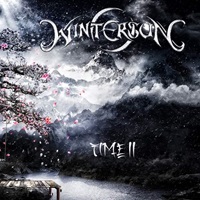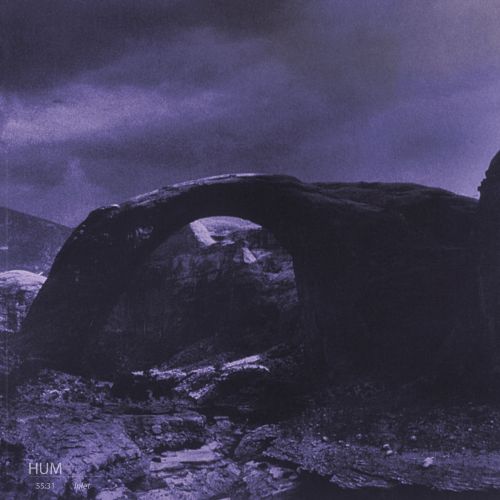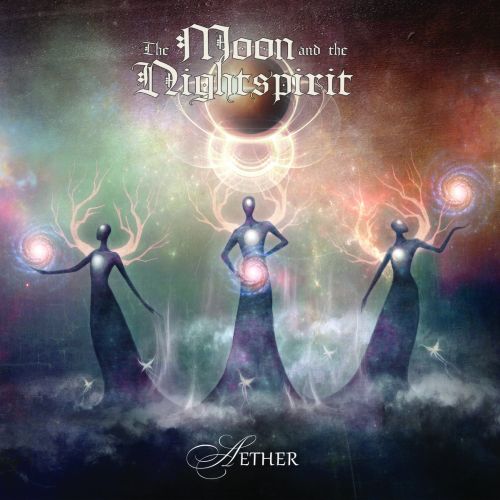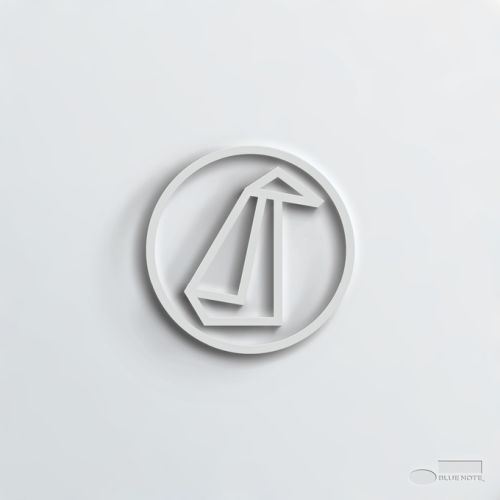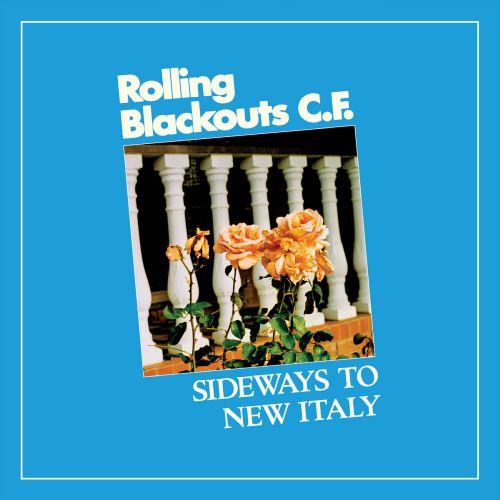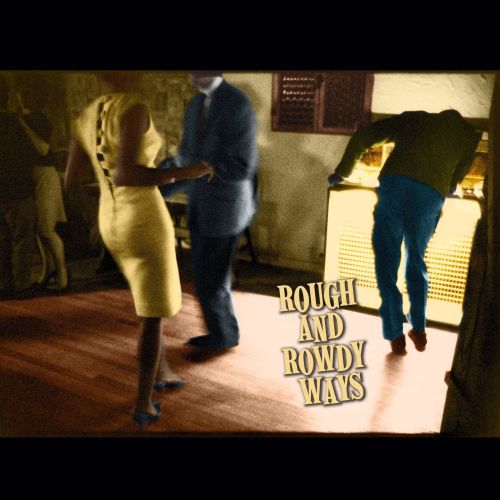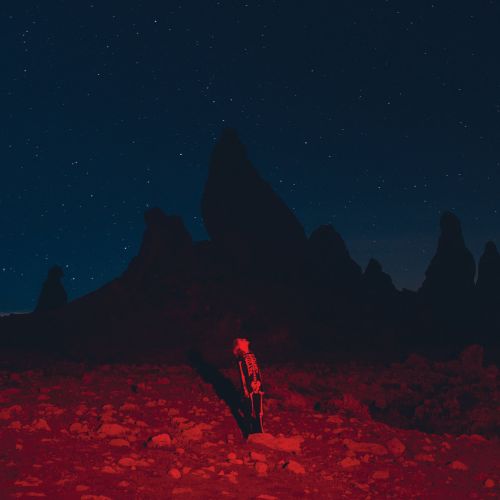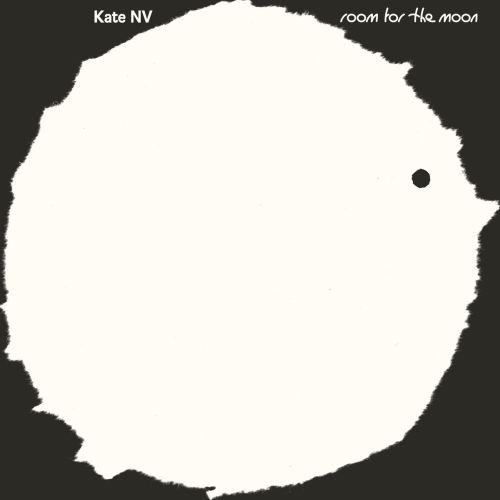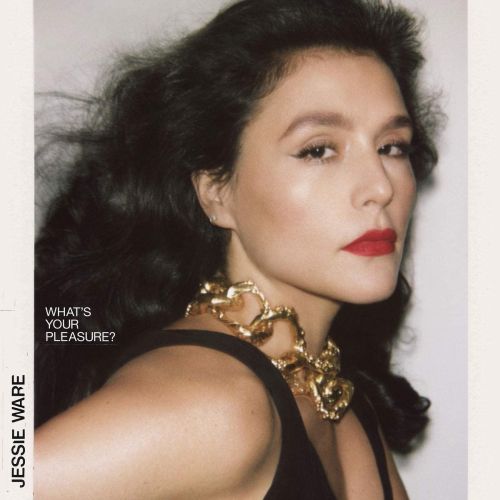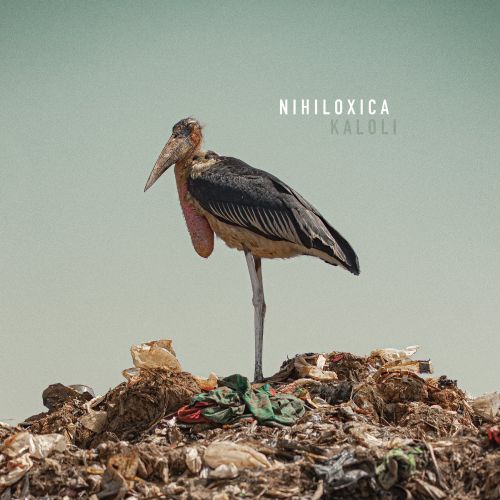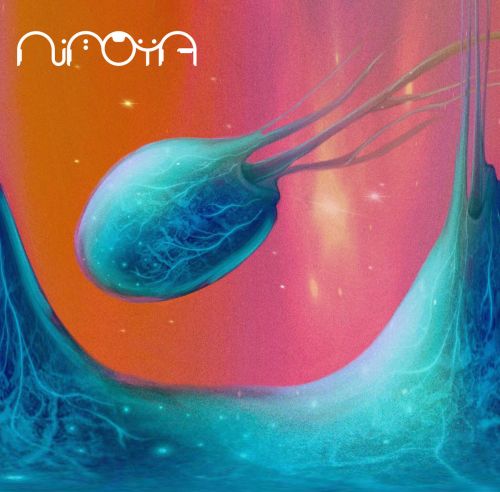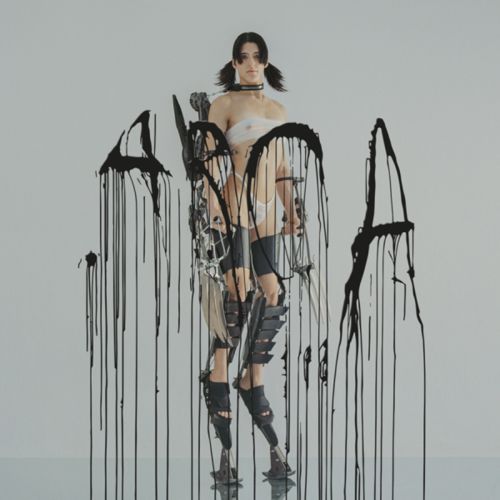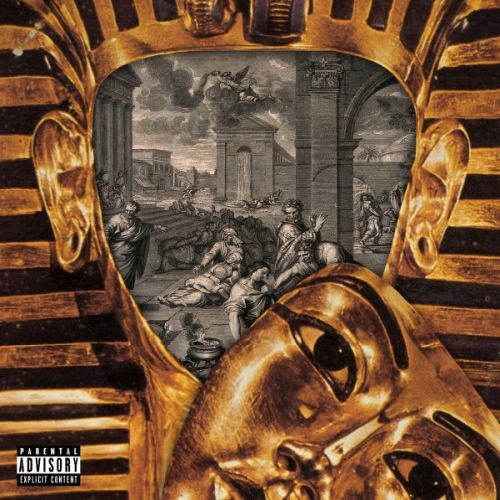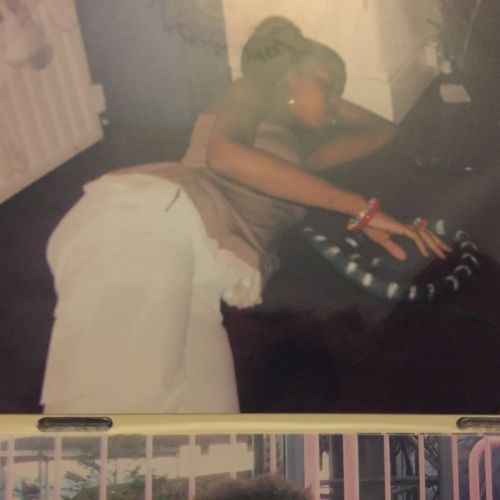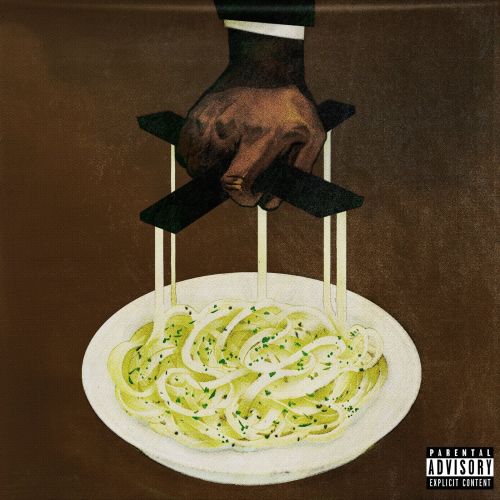Wait A Minute! This Isn't Metal! - June 2020

| Written by: | RaduP, musclassia |
| Published: | July 20, 2020 |
Wait A Minute! This Isn't Metal! - June 2020
Metal Storm's outlet for nonmetal album reviews
The place where we'll talk about music without growls or blast beats
unless they still have those but still aren't metal
unless they still have those but still aren't metal
We here at Metal Storm pride ourselves on our thousands of metal reviews and interviews and article; metal is our collective soul and passion, which is why we bother with this junk. That being said, we'd be lying if we stuck to our trve-kvlt guns and claimed that metal is the only thing we ever listen to. Whether we want to admit it or not, we do check out some other stuff from time to time; some of us are more poptimistic than others, but there's a whole world out there aside from Satan-worshiping black metal and dragon-slaying power metal. We do already feature some nonmetal artists on our website and have a few reviews to back them up, but we prefer to limit that aspect of the site to those artists who have been a strong influence on the metal scene or who are in some way connected to it. This article series is the place for those artists who don't matter to metal in the slightest but still warrant some conversation - after all, good music, is good music, and we all know metal isn't the only thing on this planet for any of us.
Down below, you might find some obscure Bandcamp bedroom projects or some Billboard-topping superstar; as long as it ain't metal and the album itself isn't a best-of compilation, it fits. Obviously, we're certain that not everything will be for everybody (you guys can be viciously territorial even when metal is the only thing on the menu, and we're all supposed to like the same things), but we do hope you find at least one thing that you can enjoy, instead of just pointing and screaming in horror "Not metal!" as if that would be an insult.
Here are our previous features:
May 2020
April 2020
March 2020
And now to the music...
On-again/off-again alt rockers Hum slipped out their first record in 22 years in the midst of the global pandemic, with Inlet appearing on Bandcamp without any prior announcement (although there had been longstanding rumours of a new record being in the works). The group's shoegaze-y grunge sound had enabled them to build a solid cult following in the 1990s; however, the acclaim that Inlet has received is purely down to its own merits, rather than any nostalgia. Opening with "Waves", the band demonstrate their present-day abilities right off the back with a huge, muscly, downtempo alt rock riff, which is supported by Matt Talbot's muted but resonant singing style, as well as the shoegaze elements in the dual-guitar attack throughout the song. "Waves" is an early statement of intent that although Hum's sound is still heavily rooted in the 90s alternative scene in which they emerged, they can still sound relevant and vital decades after that scene's heyday.
Given the approach of many bands in said scene, it's perhaps surprising how eager Hum are to write long songs, with half of the 8-song track list breaking the 8-minute mark. However, Hum are capable of supplying the content to justify the runtimes. "Desert Rambler", one of the tracks where the band most closely flirts with a more metal sound with its thick stoner riffs, fills out its 9 minutes both by extracting all it can from its killer riffs (of which there are an abundance on Inlet) and also transitioning smoothly between these loud stretches and patches of more quiet contemplation. The album is generally on the slower end of the spectrum, but the band are able to turn up the tempo on occasion, with "Step Into You" possessing slightly more drive than other cuts here. Additionally, the album has been tagged as metal in certain places, and whilst I wouldn't consider it a metal album, the likes of "Desert Rambler" and "The Summoning" do bring some punch; however, at the same time, the band can easily operate in softer, quieter territory, particular during long stretches of closing duo "Folding" and "Shapeshifter". Ultimately, Hum are adept at whatever tempo or volume they're playing at, and their fusion of grunge, shoegaze, desert rock and other alt rock approaches on Inlet has set a benchmark for 90s revivalism in the 21st century that very few modern bands will be able to approach, let alone match.
Bandcamp | Apple Music | Google Play Music | Spotify
by musclassia
Although the logo does seem more like one of a deathcore band, Died aren't exactly that. They are still somewhere around the hardcore area, but more something like a blend between Slint and Fugazi, among other things. This being their debut record, it's not unusual for their own sound not to be fully fledged and to still sound like a mesh of some influences, but even for this stage, they do show some great knack for covering a bunch of areas of the post-hardcore sound, including some post-rock in "DN Muzik" and shoegaze in "Oja De Macao" to contrast their usual "urgent Slint" sound.
There is a lot of energy in this record, but it's not the usual hardcore energy that is constantly loud and in your face, but something that warrants the Slint comparisons (especially on the "Died" track), in its tense atmosphere building and soft-loud dynamics, though with a lot more of a post-hardcore urgency to make the dread a bit more tangible. In the 36 minutes of Less Life, there's plenty of great guitar and drum lines, courtesy of the math part of their sound that makes each of them sweet and intricate, and that fulfill all that buildup when really unhinged into something that earns the term "hardcore".
Bandcamp | Apple Music | Google Play Music | Spotify
by RaduP
Hungary's The Moon And The Nightspirit have been plying their trade for what is now approaching two decades, but Aether is my first encounter with the neofolk duo, and what a beguiling encounter it is. Neofolk scenes have been increasing in prominence in recent years, particularly in the Nordic countries, with Wardruna, Heilung and Forndom amongst others receiving widespread recognition. The sound of Aether is not greatly different to the approach of those artists, but is still clearly distinguishable. The Nordic artists place heavy emphasis on vocals and percussion, with the instrumental side regularly droning. In contrast, the title track on Aether has a range of instruments (acoustic guitars, harps, piano, pipes) front-and-centre, creating a dark, enchanting soundtrack alongside the expected tribal drumming above which the contrasting male and female vocals of Mihály Szabó and Ágnes Tóth can dance. In contrast to the grounded, spiritual vibe of an act like Wardruna, this greater instrumental prominence gives something of a mystical vibe to "Aether".
Whilst "Kaputlan Kapukon Át" doesn't quite replicate the intensity of this vibe, its memorable acoustic guitar work provides a strong basis for the exchanges between Tóth's ethereal cleans and Szabó's more gruff interjections. The sonic foundations that persist throughout the whole album are made clear on these first two tracks; however, songs do vary somewhat in approach. "Égi Messzeségek", for example, more notably relies on the types of drones that common lay the foundation of Wardruna tracks, whereas the percussion and electric guitar on "A Szárny" further blurs the boundaries between the metal and neofolk scenes. Clocking in at 40 minutes, Aether is a charming listen that doesn't outlive its welcome, demonstrating the kind of maturity that comes to an act seven records into their career.
Bandcamp | Apple Music | Google Play Music | Spotify
by musclassia
I first encountered Covet at last year's ArcTanGent festival in the UK, and whilst I wasn't entirely into the music, I had to agree with my friends regarding the impressive nature of Yvette Young's guitar work. Technicolor is my first time listening to the group since then, and the first time I've heard them on record, and Young's performance is no less spellbinding here, not least since she now also takes on lead vocal duties this time around. Covet's brand of math rock is as complex, twisted and technical as one would expect for the genre (see the contorted first few seconds of "Atreyu" for a taste of what's in store on Technicolor), but it's delivered with a gentleness and serenity that, much like other guitar virtuosos such as Sithu Aye and Plini, allows such complex music to feel incredibly approachable and welcoming.
Without any intention of underselling the other members of Covet, with Forrest Rice's drumming and David Adamiak's bass more than rising to the challenge on Technicolor, Young is the star here, particularly now that she's making vocal contributions. "Parachute", a more muted venture than "Atreyu", shows Young to be right at home behind the mic, nicely complementing the instrumental meanderings by grounding the song with some smooth, sedate verses, with her singing tone effortlessly matching the instrumental vibe. The vocal contributions are rare, with the only substantial appearance outside of "Parachute" occurring on "Farewell", but they suit Covet's music nicely, and promise plenty of scope for further exploration on future records. For now, they are a solid but ultimately small piece of the puzzle on Technicolor, where the instrumental side reigns supreme, and whether on the rockier side or gentler end of the spectrum ("Nero" is a pretty ideal example of both, and my pick of the bunch here), those instrumentals are captivating throughout.
Bandcamp | Apple Music | Google Play Music | Spotify
by musclassia
Manchester trio GoGo Penguin have been prolific since their inception; with less than 10 years on the board, they are already five records in, with their sophomore release v2.0 receiving a Mercury prize nomination. Their self-titled album number 5 is my introduction to the band, and from listening it's easy to see how they could have obtained nomination-level acclaim early on in their career. The group are a trio of piano, double bass and drums, and the three instruments coalesce to form a compelling sound. On "Atomised", the jazzy drums and virtuoso piano are the more ear-catching elements, but the double bass provides both rhythm and intriguing counter-melodies.
Not too distinct from Portico Quartet tonally, the band manages to pull off that balance between instrumental business and complexity whilst also delivering a chilled, smooth vibe. All members of the group are playing complex music fast on "Signal In The Noise", yet the song doesn't feel rushed or frantic, and the times the piano pulls back just a tad to allow some chords to drone out really further leans into the gentle emotions that the track conveys. Not all tracks are necessarily busy; the piano takes on the lead responsibilities on "Open", below which the rhythm section is slightly reined in compared to on previous cuts. Also, whilst the album never massively changes in tone, it does fluctuate, with a track such as "Kora" standing out with its playfulness, whilst "Totem" has a greater intensity to it. Wherever they go, however, GoGo Penguin remain engrossing on GoGo Penguin, a killer demonstration of the chemistry of these three musicians.
Apple Music | Google Play Music | Spotify
by musclassia
Jangle Pop is a pretty great sound that often gets reduced to The Smiths and early R.E.M.. Rolling Blackouts C.F. (also known as Rolling Blackouts Coastal Fever) is an Australian band bringing those pop post-punk sounds into a more modern indie rock direction, as well as some older similarly indie stuff like The Stone Roses. Just one look at their band name is clear that this is an ostensibly indie band, and their retro pleasant sunny tunes may not really be fit for the times, but they provide some great memories of sun soaked summers when there were far less worries. It's great to feel that comfort again.
While I find Sideways To New Italy a bit less inspiring than their promising debut, 2018's Hope Downs, it also contains what I think is their best song, "Cars In Space", which might be the one I will be returning to most often. While their sound has always been lush, the one here seems a bit tighter, albeit less energetic, but there are still plenty of memorable choruses and guitar lines to last the summer, and the lush sound doesn't suffer much from it sounding a bit more processed. Rolling Blackouts C.F. still remain a pretty promising band just from the guitar work alone, and hopefully they'll find more ways to play with their sound until the next record.
Bandcamp | Apple Music | Google Play Music | Spotify
by RaduP
It's hard to imagine that Bob Dylan released his debut album almost 60 years ago and he is still making music that still intrigues people. Having previously came out with a few records of traditional pop covers, Rough And Rowdy Ways is his first album of original material since 2012's Tempest. For a man this far into his career, eight years for a new album isn't so unusual, but we might not get any more Bob Dylan in eight more years. And to the man's benefit: it's the best Bob Dylan album in a while, though that isn't saying as much as I would like it to. As in, it's far from being as exciting as his 60s/70s material, it doesn't do many interesting things, but it still does enough to not be worth skipping.
Probably the worst part about it is that it doesn't do enough in terms of either interesting instrumentation or lyricism to warrant the runtime, especially of closer track "Murder Most Foul", a 16 minute song about the assassination of JFK. This isn't to say that nothing about it is interesting, as there is clearly a reason why Bob Dylan of all people received a Nobel prize, and there's still enough to like about the lyricism of songs like "My Own Version Of You" or "Crossing The Rubicon", and the raspy old voice with sparse Americana / Blues instrumentation does have its own appeal. But remembering how many artists had creative renaissances in their old age, it makes Rough And Rowdy Ways just slightly over pleasant.
Apple Music | Google Play Music | Spotify
by RaduP
Phoebe Bridgers for me was that face that kept popping up in my YouTube recommended and I always wanted to click on it out of curiosity, but I always found another familiar song I wanted to listen to instead. When I finally did click on "Motion Sickness" it became one of those familiar songs I wanted to listen to instead. But that song is from her previous record, 2017's Stranger In The Alps". Once I started clicking on more Phoebe Bridgers I came across the bonkers lo-fi green screen video for "Kyoto", which instantly made Punisher one of my most anticipated records. Now we have it, and it's one of the most stunning singer/songwriter records I've heard lately.
Even if "Kyoto" was really upbeat by contrast, and had more moments I would call "powerful", Punisher is pretty quiet and sad, a lot of it feeling quite close to Phoebe's influence from Elliott Smith. Most of it is very intimate and subdued, with some slight psychedelic touches to make the production more fun, but as expected from a singer/songwriter album, most of the focus is on the vocals and the lyricism, which is a lot more multi-faceted than one would expect from such an album. And with such a quiet and subdued album, when the crescendo in the last track finally hits, it feels like such a welcome release to all that emotional buildup, and it's quite surprisingly heavy, especially hearing Phoebe scream like that over some Godspeed You! Black Emperor sounding crescendo.
Bandcamp | Apple Music | Spotify
by RaduP
"Not Not Not" is a fairly good example of how a song classified as 'pop' may not be widely accessible. Between the sonic whirlwind created by the percussion, synths and saxophones, and the abstract vocal melodies, this is off-kilter and alien in a way that may challenge pre-conceived notions towards music carrying the 'pop' genre tag. "Du Na" continues in this vein, with its new age vibes distorted by the vibrant saxophone interjections to produce an outcome that, whilst coming across as gentle, still feels somewhat unhinged. Kate NV, or full name Kate Shilonosova, takes an experimental approach to music, never hesitating from injecting an otherwise smooth, jangling track such as "Sayonara" with quirky synth toots. The result sees Kate NV take gentle, melodic and danceable music in strange and abstract directions; or alternatively, it sees her apply an approachable and grounded touch to avant-garde music.
Kate NV's vocals vary in prominence throughout the record; on some tracks they are broadly absent, on others they feel like a peripheral element swimming through the mix, and on other still they are front and centre, such as on the delightfully quirky "Ça Commence Par", where a hint of namesake Kate Bush can be noticed in her performance. Another song that features her singing more prominent is the chilled-out "Marafon 15", which interweaves an array of synth lines through the mix, which is built on a gentle beat quirky bassline. The approach varies on a track-by-track basis, with different instruments/synth tones employed to help to further differentiate tracks; Kate stated in an interview that "each song is like a character who, to one degree or another, is presented in me", and they certainly feel like unique characters. Room For The Moon certainly won't appeal to everyone, but it makes for quite an intriguing journey.
Bandcamp | Apple Music | Google Play Music | Spotify
by musclassia
Before seeing the attention that this album received, I can't say that I was really aware of who Jessie Ware was. Seeing her as a fairly well-known but never really popular pop singer from the 2010s, I went into her discog discovering that I knew that "Wildest Moments" song without knowing it's her. And while I did like her debut album, which has said song, I can't say I cared that much for the albums that followed, being a sort of admittedly more sophisticated brand of modern pop, soul and R&B, but nothing really that worth paying attention to. Hence why What's Your Pleasure? comes as such a big surprise. I like my fair share of modern pop and it certainly can be done right, but something about that nostalgia bait that really gets to me really works here. And I didn't even live through the disco era.
I won't spend more time talking about her previous work, since What's Your Pleasure? makes all of it seem irrelevant by comparison. This album takes all the old disco-inspired sounds, blended with some house diva and synth funk to make a sound so sensual and fun that pretty much stands as a testament to why pop music even makes us wanna dance and fall in love in the first place. The production is smooth, the sound palette is pretty wide, the vocals are lush and not overtly raunchy, and just the entire thing oozes of confidence, being on the lighter and more primal side, without feeling dumbed-down. Out of the two songs named "Ooh La La" that came out this year, this one holds my favorite.
Apple Music | Google Play Music | Spotify
by RaduP
Nihiloxica, the fusion of British electronic artists Spooky J and PQ with Uganda's Nilotika Cultural Ensemble, offers up a blend of percussion and electronic to really savour. The Ugandan percussion is the base of the record, but the infusion of different electronic approaches takes it in a range of new and interesting directions. Without the sinister synths on opening track "Supuki", the tone of the track would be far from the ominous one it ultimately possesses. Having said that, the chromatic descending scales towards the end of this track would sound slightly disorienting regardless.
On many tracks, the electronics predominantly provide eerie drones, acting to set the scene whilst the percussion does the bulk of the work, and what work they do; the interplay between the array of different drums and other percussive instruments is never less than entrancing. The way that the energy ratchets up during "Tewali Sukali", ably aided by the churning sound effects beneath, leaves you almost needing to catch your breath when it eventually reaches a conclusion. Nevertheless, there are some tracks where the electronics take on more of a percussive role themselves, with "Black Kaveera" serving as a good example, opening with ballistic pulses that keep pounding away after the ensemble joins in, along with some off-kilter noise placed more prominently in the mix later in the track. They also take on a more melodic role on "Busoga", with some quite flamboyant synthwork taking this track in a completely different direction to much of the rest of the record. Still, this side of the band arguably gets most chance to shine on the pair of brief interludes scattered in the track list; for the most part, the percussionists play the lead roles on Kaloli, and given the quality of their work here, that's no bad thing.
Bandcamp | Apple Music | Google Play Music | Spotify
by musclassia
Ni Moya is the electronic side-project of John Vagenas, bassist and vocalist of Greek psychedelic rock band Naxatras, whose 2018 album III I thoroughly enjoyed. There isn't a clear sonic connection between the meandering stoner jams of Naxatras and the (mostly mellow) electronics on Ni Moya, but Vagenas demonstrates an aptitude for both styles. Opening track "Green Airplanes (What Do They Mean?)" is based around a single oscillating motif above which gentle, joyful synth lines are introduced, with syncopated beats driving the song forward. The tone always feels relaxed, even as rapid-speed oscillations build up towards the end of the track. "Ruby" is more of a pulsating affair, with a more dancefloor-friendly beat; however, it still possesses a soothing aura, particularly as the beat disappears to leave just the unrelenting pulse alongside ambient synths.
There are some interesting directions taken on Ni Moya. The last minute or so of "Ruby" features some folk singing, as well as a brief cameo from a stringed instrument (bouzouki?). More extensive infusion of additional elements occurs on "Careful With That Axe, Raskolnikov", which features saxophone as a guest star on a loose, laidback closing track. Personally, I preferred the upbeat ambient electronics of the earlier songs to this diversion into jazz, but it's an interesting contrast to the rest of the album, particularly as it's preceded by "And Then I Saw The Face Of God", the darkest track on Ni Moya with an ominous techno beginning before traversing through a range of sounds before its conclusion. Surprisingly varied across its 4 tracks and ~30 minutes of runtime, certain moments feel perhaps a tad disjointed, but overall it makes for a satisfying journey.
Bandcamp | Apple Music | Spotify
by musclassia
Venezuela's Arca has been one of the most interesting producers to follow in the last decade, not only having done some stellar production (including Kanye West's Yeezus, Björk's Vulnicura and FKA Twigs's LP1 to name a few) but also coming out with a series of their own IDM records, out of which Mutant and the selftitled have seen some heavy rotation for their offbeat weird glitchy deconstructionalism. However one of the progressions that seems to have fully materialized on KiCk i was the shift towards incorporating more and more vocals, with a lot of the vocals on this album being done by Arca themself.
The album even opens with something of a hip-hop song, an ars poetica of sorts, called "Nonbinary", which does come after Arca came out with that identity. The lyricism and flow is still not really on par, but for someone who is mainly a producer, still not a bad showing. The album does have some other vocal spots, a lot of them in Spanish, including some guest spots from the likes of Björk and Rosalia, and the vocals are incorporated really well, but I'd be lying if I said that this was an album you'd listen for the vocals. The sounds on this record are absolute bonkers, taking more and more from reggaeton and UK bass, and I have to admit I've never heard reggaeton sound as abstract as here.
Apple Music | Google Play Music | Spotify
by RaduP
Anyone who follows this series regular may have noticed that the hip-hop records are typically reviewed by Radu or Apothecary; it's not like I dislike all hip-hop (Death Grips's Bottomless Pit sneaked onto my end-of-decade list), but most of it isn't to my tastes. However, Backxwash's God Has Nothing To Do With This Leave Him Out Of It (or God Has Nothing from now on) caught my interest within the first minute and hasn't let go of it since. The Black Sabbath samples on the title track admittedly piqued my attention, but the menacing bass that goes along with it does more than Ozzy can to set the tone on God Has Nothing, and the energy in the impassioned rapping that comes with it makes it clear that this is going to be an imposing listen. Being pretty naïve to this world of music, I don't have an abundance of reference points, but the bleakness of the instrumental arrangements reminds me somewhat of NGHTCRWLR's record from earlier this year, with the menacing low-end base and slick beats dominating the instrumental side of the record.
Most of the vocal duties on God Has Nothing belong to Backxwash, who has also taken on a greater role on the production side of things compared with previous records. However, there's a number guests that appear on the record, including Skunk Anansie's Skin appearing on "Heaven's Interlude". My favourite of these appearance's is Devi McCallion's contribution on "Spells", which takes my mind right to The Dillinger Escape Plan's Faith No More-inspired "Dead As History", and serves as a fitting contrast to Backxwash's lyrics. Lyrics play a far greater role in hip-hop than most genres, which given my relative inattention towards lyrics does make me poorly equipped to give them the focus they deserve. However, from reading online, it focuses around the challenges faced by Backxwash as a black transwoman in relation to mental health, familial and societal interactions, and the idea and abuse of faith, and these emotions are laid bare on the gripping "Into The Void", a particularly raw cut on the record concerning anxiety and paranoia in public. At the other end of the spectrum, the blues-y vibe to "Redemption" makes this profanity-laden closing track feel almost soothing in comparison to the claustrophobic vibe of previous songs. Coming in at just over 20 minutes, God Has Nothing doesn't stick around - it makes its point and moves on, and it sure makes its point in an emphatic manner.
Bandcamp | Apple Music | Google Play Music | Spotify
by musclassia
It's not really easy to admit it, but even if I listened to my fair share of hip-hop, I absolutely suck at it. I could say that about pretty much any genre that isn't metal, but if I were to say strictly about how much of it I listen to vs how good I am at appreciating the genre, hip-hop ranks pretty low. I ain't saying that I don't like hip-hop, but I'm way too often focused on flow and production on a genre that is really more focused on lyricism. And here we have Scriptures In The Sky, a collaborative album between two New York rappers, one of whom I got to know through his appearance on a Chong Wizard project (more on that here). What stroke me about that album series is that it features a shitload of rappers and producers, and I had heard of none of them before.
And that's alright, a lot of people interested in metal haven't heard about most of the bands I reviewed, but it kinda blew me away as to just how many hip-hop is out there. Obviously everyone has that one dude in their hometown still trying to be a rapper, but these guys are damn great and are pretty much close to being on par (by my outsider standard) with most of what I heard in my entry level exploration. And I searched to see any other review of Scriptures In The Sky to maybe get some more insight. Nothing. No comment on the Bandcamp page. And Scriptures In The Sky is fucking dope, really great jazzy production, hazy vibe, two rappers with very distinct but great flows, as well as a fair number of features, and from what I could gather, pretty decent bars too. Overall nothing here that feels amateurish or uninspired. I don't wanna be a mumble-rap-blaming boomer, but I can't see why something like this doesn't get at least some underground attention. Just how many Scriptures In The Sky-es lie undiscovered out there?
Apple Music | Spotify
by RaduP
With a name as casual as "Mike" and a sound as underground as this, I didn't expect this rapper to gain as much of a following as he did. At 21 years old and with already a sizeable number of albums, mixtapes and EPs under his belt, Bronx rapper Mike seems about as abstract and glitchy as hip hop can conceivably go while still retaining some semblance of being hip-hop. A lot of it sounds like the cloud rap era of internet hip-hop, with its overly hazy adlibs, dreamlike production and lo-fi sound that sometimes even sounds like vaporwave in its sampling, but at the same time a lot of it also takes major cues from something like Madvillainy in its soulful jazzy hip-hop ventures into the abstract.
So don't let the lo-fi internet-inspired sound and lazy vibe of the album detract from taking it seriously. There is a lot of sorrow oozing from Weight Of The World, as it is still inspired by and centered around Mike's recently deceased mother, with a lot of the album exploring memories and the fallout since the event, and a lot of it is explored very directly in the deceivingly apathetic lyrics. The lethargic sound does get to feel quite samey after a while, but just the sheer weirdness of the hypnotic and surreal production that already captured the appeal of two different styles is enough to carry it even past the emotional weight, hence the name, that it's already burdened with.
Bandcamp | Apple Music | Google Play Music | Spotify
by RaduP
With such a backstory on the cover art, it's quite expected that Shrines would be quite a vicious album, and in some ways it is. Armand Hammer are a hip-hop duo of some underground darlings in Billy Woods and Elucid, the former of which we have previously covered and cannot stop recommending. If you are in any way familiar with either of those or their work as a duo, you'll know that the hip-hop they make is not precisely hardcore, but still retains its viciousness from its abstract production, powerful flows and dark but witty lyricism. What the hell is a better embodiment of dark humor than having a pet tiger in New York, complete with samples of the interview with the owner's brother?
The duo complement each other quite extraordinarily, making the interplay of their flows a bit more entertaining than having each of them on their own, but Shrines finds Armand Hammer also sharing the stage with a lot more guests than usual, with Quelle Chris, R.A.P. Ferreira and even having Moor Mother and Earl Sweatshirt on the same track. However, this is hip-hop that isn't concerned with how catchy it is, none of these tracks are what you'd call "bangers", instead forcing you to live through the storytelling through the hazy, sometimes jazzy, sometimes dreamlike, always abstract production. You will feel the world they talk about, and it ain't a nice one.
Bandcamp | Apple Music | Google Play Music | Spotify
by RaduP
Neither Freddie Gibbs nor The Alchemist are strangers to doing collab albums, both of them having done collab albums that I reviewed, Freddie Gibbs with Madlib, and The Alchemist with Boldly James, but both of them actually previously worked together on the 2018 album Fetti. So the history is there, but Alfredo does feel like a great continuation of this trend. Though I can't say I like it as much as Bandana, I can't deny that it is at least offering it some tough competition. Because of The Alchemist's production having some similar features to Madlib's, the production and Gibbs' flow work perfectly together once again.
There is quite a bit of a Mafioso feel to the record, which isn't anything new for the Gangsta Rap that Freddie Gibbs has done throughout his career. His flow and lyricism fits the theme perfectly, but it's The Alchemist's slick production of smooth and soulful jazz that really sells the smoky crime feel of the album. It really feels like you're being in an Italian restaurant while some sharp dressed men may or may not be code talking about their rackets and hits, while also washing this image in Gibbs' ghetto voice. Plus add some great guest spots from Rick Ross and Tyler, The Creator. At barely 35 minutes in runtime, Alfredo is short, sweet, and deadly.
Apple Music | Google Play Music | Spotify
by RaduP
At this point anyone with some tangency to the hip-hop scene is familiar with Run The Jewels, the duo of El-P and Killer Mike, with their lack of creativity when naming their albums. Though I had some hopes that once their trilogy of albums was finished they would take a break and resume their solo careers, times like these kinda called for another one, considering how much of a cultural force the duo have become, and how much they were able to compromise political lyrics and catchiness. I mean, how many other rap outfits could make such a catchy chorus out of "Look at all these slave masters posin' on yo' dollar"?
I am not really fond of the repetitive chorus of "Ooh La La", but other than that one, it's not like RTJ4 isn't chunk-full of verses after verses after verses, with a lot of the catchiness itself coming out from how absolutely fire those beats and flows are. Overall RTJ4 is incredibly consistent, though obviously there are some sparse subpar moments but completely drowned by how hard hitting the rest of the album is. Though it's not really anything really new for Run The Jewels, it's great hearing lines like "Don't forget the story of Jesus, the hero is killed by the state" and finally hearing Zach De La Rocha again, as bummer as I am for that El-P produced album never coming to life.
Apple Music | Google Play Music | Spotify
by RaduP
And that was it. You've made it through still alive. Congrats. See ya next month.
Comments
Comments: 13
Visited by: 95 users
| nikarg Staff |
| RaduP CertifiedHipster Staff |
| Piledr1ver Posts: 14 |
| musclassia Staff |
| musclassia Staff |
| musclassia Staff |
| VileVick-Bryant |
| RaduP CertifiedHipster Staff |
| VileVick-Bryant |
| Bad English Tage Westerlund |
| nikarg Staff |
| Malaclypse |
| tintinb Posts: 1970 |
Hits total: 3551 | This month: 32

